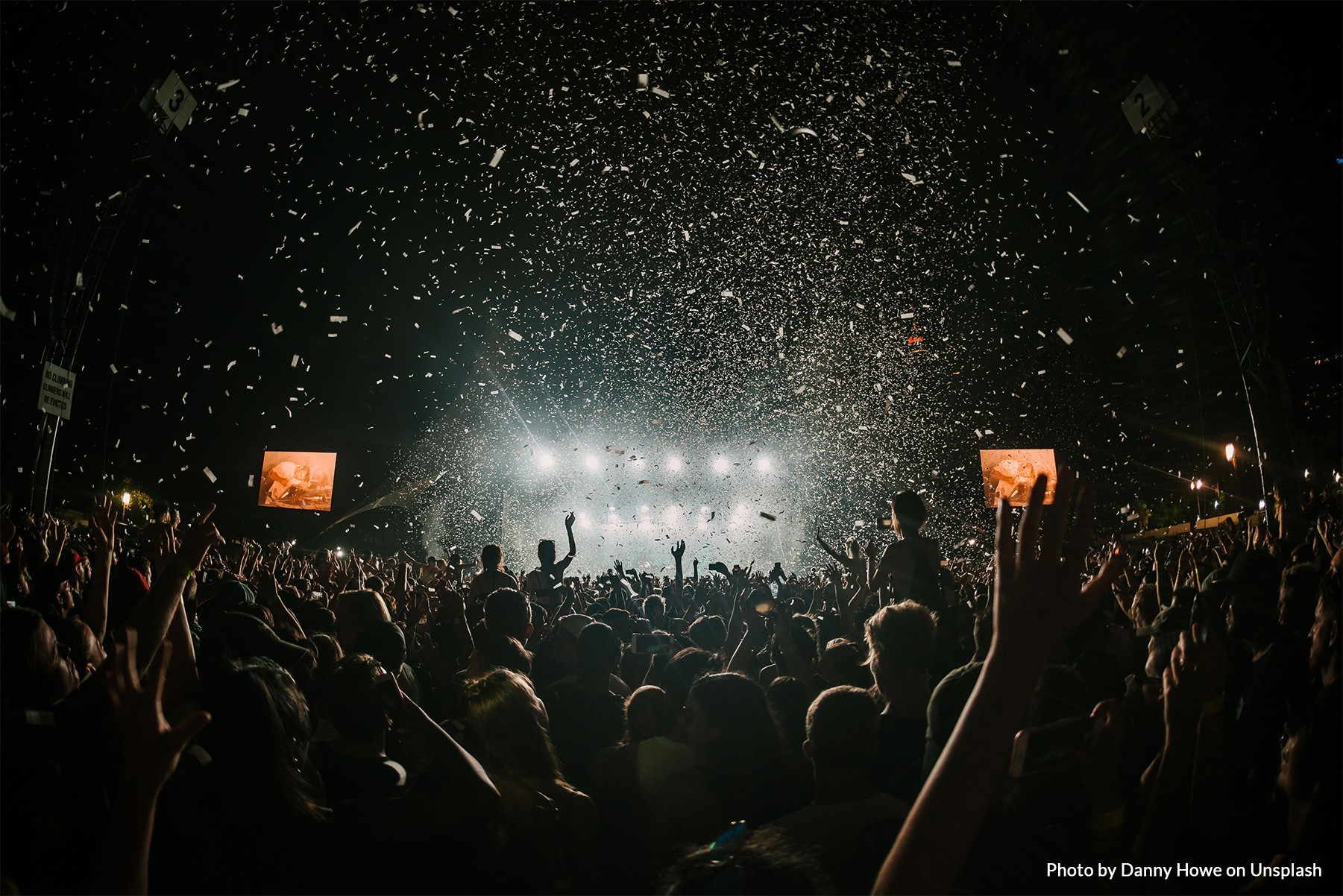With the right content and well-planned events, there’s no holding it back
It is a testament to the resilience of esports that it has held onto its popularity over trying times these past two years.
Before COVID, the growth in esports players and audience was already strong. When the virus hit, paralyzing normal activity around the globe and forcing events to move largely online, viewer numbers climbed. Now, coming into 2022, and with some events returning to venues with a live audience, there are signs popularity is set to soar to meteoric levels, catapulting games, players, teams, and the entire ecosystem to previously unseen heights.
That esports is emerging from two years of global turmoil more popular than ever isn’t a surprise to James Yang, director of Esports Center, Tencent Games Global.

“Nobody could have predicted what happened, and while it really changed how we arrange esports events and how the audience enjoys those events, it’s pretty stunning to see viewing numbers rise the way they have. It suggests a really bright future,” said Yang as he prepared for the PUBG MOBILE Global Championship Grand Finals in Singapore.
Funny thing is, Yang didn’t grow up coveting a career organizing esports efforts for the world’s largest game company. Yang kicked off his career in 1999 as a game designer, becoming a producer and general manager, before diving deeper into the mobile space in 2013. It was five years later when he first found himself leading the charge for mobile esports.
“It was not a dream of mine to do esports when I was a child, I wanted to make games. But, because I watched Starcraft for a long time, it was very enjoyable as a spectator sport, and when the chance to work in esports came around, I didn’t even hesitate,” Yang said.
“I like building something from scratch, and with esports, we are making something real and true happen in competition, production, streaming, everything within the ecosystem. I want the audience to enjoy whatever I help put out there, and esports is a great way to do that.”
Esports fits into an unusual space. While real-life sports aficionados might sniff at the notion of mentioning “couch jockeys” with joysticks in the same sentence as Cristiano Ronaldo or Michael Jordan, top esports athletes need the sort of stellar reflexes and split-second judgments that rest on nutrition, fitness and thousands of hours of training. To win requires both individual skill and strong teamwork. And to put a cap on it, millions of real and virtual followers and fans around the world, just like the audiences for Premier League football matches, but there’s more.
With audiences consuming over 200 million hours of esports content in the last year, Yang and his team are certainly committed to their mission of providing esports not just as entertainment, but also as a service to the games themselves. The events generate memorable moments captured on video, thousands of hours of content, massive buzz on social media and in online communities. And there is no better and more effective way to market and advertise a game, winning over viewers, who also become players. Some of the world’s most popular mobile games are downloaded and played by well over a billion people, for example.
Yang says he views esports not as any particular game or event. And those events, and what goes into them – marketing, sponsorships, logistics, planning, strategy – are far more than just the sum of the parts. It’s best, he said, to talk about sports as a complete ecosystem – one that requires constant care.

When planning an event, he said, it’s paramount to create entertaining content for the audience. Equally important is educating all stakeholders about how much hard work goes into making esports successful, and the profound impact that can have on a game.
There were times during COVID when Yang wondered what the future would bring, whether the ecosystem would endure. But it has. It required some deft pirouettes in mindset and how events had to be planned and held. Some of those changes may become a permanent part of the esports ecosystem after the pandemic passes.
“I feel proud to say that we didn’t cancel any events. We reacted to the situation, developed necessary tools and technology and adjusted to fit online events into our planning. Online has its advantages, delivering a variety of multimedia options. Even with COVID getting better this year, things may not totally go back.”
Still, there’s nothing like having “audiences to gather in one place and feel the emotion and passion of the players devoted to winning and competing.” Live competition helps even what can sometimes be an uneven playing field because of the disparity in training resources and investments available to teams training in different parts of the world.
There are teams that train in advanced facilities, surrounded by trainers and psychologists, supported by their governments, while others pride themselves on coming up from the grassroots and discovering their innate talent. Organizers try their best to provide a neutral ground, be it finding the most central of locations or flying teams out to the competition or exploring new technologies that can bridge the gap in training resources.
Yang does expect some of that gap to close organically. As esports gain popularity and prominence around the globe, resources, facilities and other investments directed to the sector will grow and the quality of players and teams – from rank amateur to professional – should improve.

“As gaming culture becomes more ingrained, with younger players getting involved, we are beginning to see more support and teams becoming not just more proficient in play, but also incredibly professional in every other aspect like training and strategizing.
The same can be said for esports events as well. A pinnacle event, such as the PMGC Grand Finals, that took place from January 21 to 23, is the result of hard work put in by hundreds.
According to Yang, planning began more than a year ahead of time, taking into account the need to have winning teams from around the world congregate in one location to compete. Even so, organizers could only really set things in stone once all the preceding qualifiers and tournaments have concluded, while securing a location is always challenging.
“Putting together the arena, communicating with the players, managing flights and everything else, there’s plenty to get right. Furthermore, if we are talking about creating content around the event, the games, the audience, that can easily require 100 to 200 people,” Yang explained.
“The costs should not be too surprising, and it is a huge multimillion-dollar investment by a publisher like Tencent to deliver a quality esports event such as this.”
Spectators are quite spoiled for choice when it comes to esports around the world. Organizers like Tencent may be the ones holding the showcase events, but there are many smaller sized tournaments happening at any given time. The community-driven efforts are indicators of esports gaining a further foothold in the gaming ecosystem.
The way the sector is developing clearly excites Yang, as he suggests that “every day, at almost every hour, you can easily find some tournament ongoing that you can watch, but also join as a competitor as part of the scene.”
The variety of games esports players can tackle and audiences can tune into is on the rise. Whether you prefer something like PUBG MOBILE for its high-octane action, or Arena of Valor for its strategic plays, at the end of the day, it’s up to esports stakeholders to create a space for enjoyment and entertainment.
For Yang and the rest of his team, the objective is to become “the true, clear leader in mobile esports.” Though a pioneer, Tencent Games Global’s rise in the mobile esports frontier hasn’t been easy. Even there, there’s a lot of competition, but that has only spurred Yang on to build things even bigger and better.
Longer-term, with the global accessibility and appeal of smartphones and video games, Yang also said it’s not out of the realm of possibility that mobile esports can grow to rival both the following and enthusiasm of physical sporting events.


